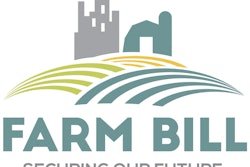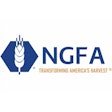
During the final round of negotiations over the Tax Cuts and Jobs Act of 2017, Congress passed a law giving farmer-owned cooperatives a significant advantage over privately owned grain companies. Section 199A states that producers selling commodities only to cooperative-owned businesses would be able to reduce their federal income tax liability by 20%.
The significance of the reduction is enough that many private grain buyers fear producers will be influenced over where and with whom they market their grain.
The co-op provision was written by Sens. John Hoeven (R-ND) and John Thune (R-SD) to replace the previous section 199A that was repealed; however, the new language is being interpreted by industry tax experts as too lucrative for cooperatives. The senators’ intentions were to keep small businesses on the same playing field as large corporations — companies that would benefit from their own significant tax savings starting in February.
After the Act was passed, the National Grain and Feed Association — a group whose membership encompasses both privately held and cooperative-owned grain businesses — began to engage the authors of the provision, as well as industry stakeholders.
NGFA released a statement jointly with the National Council of Farmer Cooperatives saying, “Congress’s intent in including this provision was to replicate the tax treatment previously available to co-op farmer-members, consistent with the bill’s overarching goal of creating jobs and economic growth including in rural America. We are working intensively with stakeholders, including cooperatives, noncooperative-owned agribusinesses and Senate offices, including Sens. Hoeven, Thune and [Pat Roberts (R-KS)]. The goal of these discussions is to arrive at an equitable solution that preserves the benefits that cooperatives and their farmer patrons previously enjoyed under Section 199 of the tax code, while addressing any unforeseen impacts on producers’ marketing decisions.”
Sen. Hoeven is reportedly confident the parties involved in renegotiating will come to an agreement before February, when the omnibus spending bill comes to a vote.















